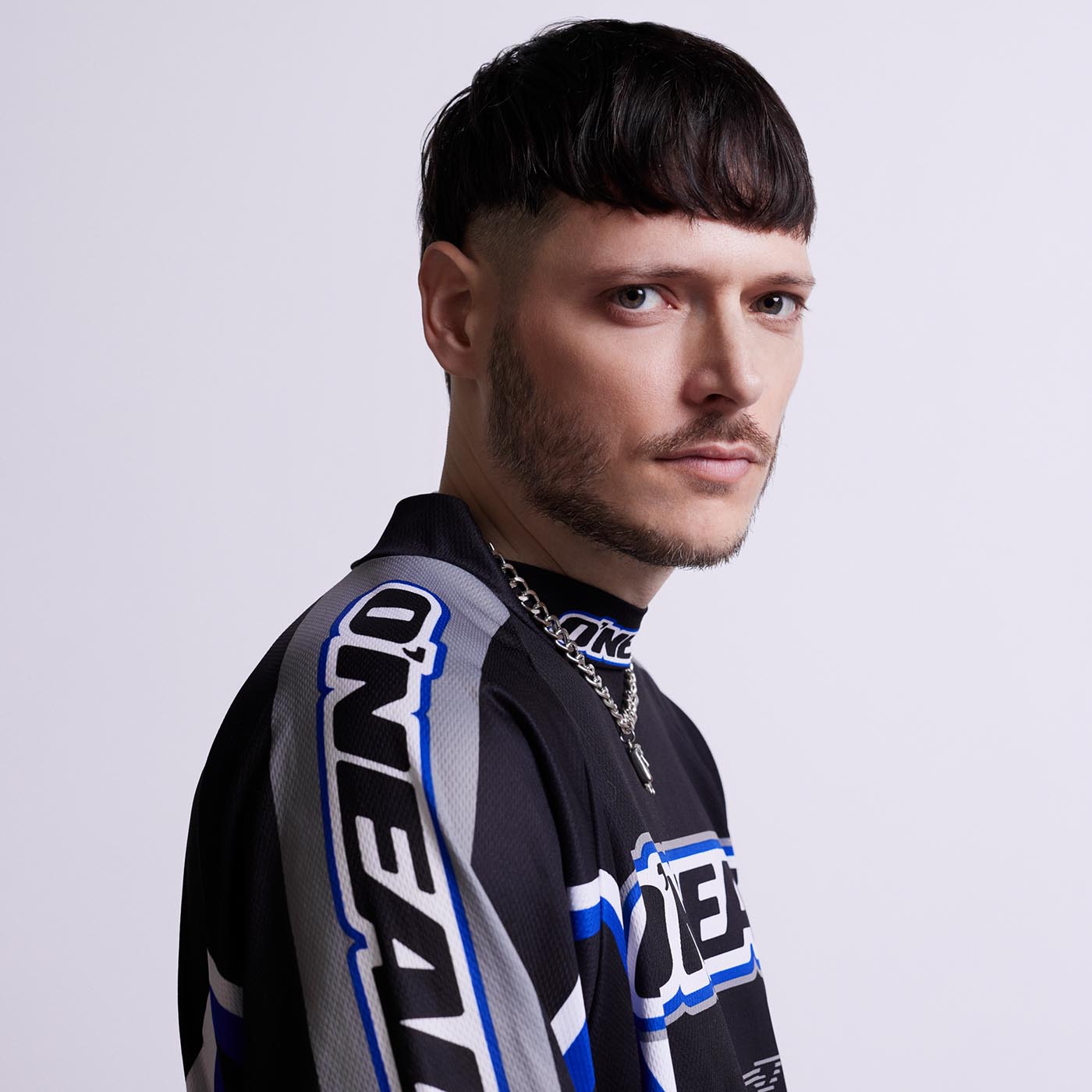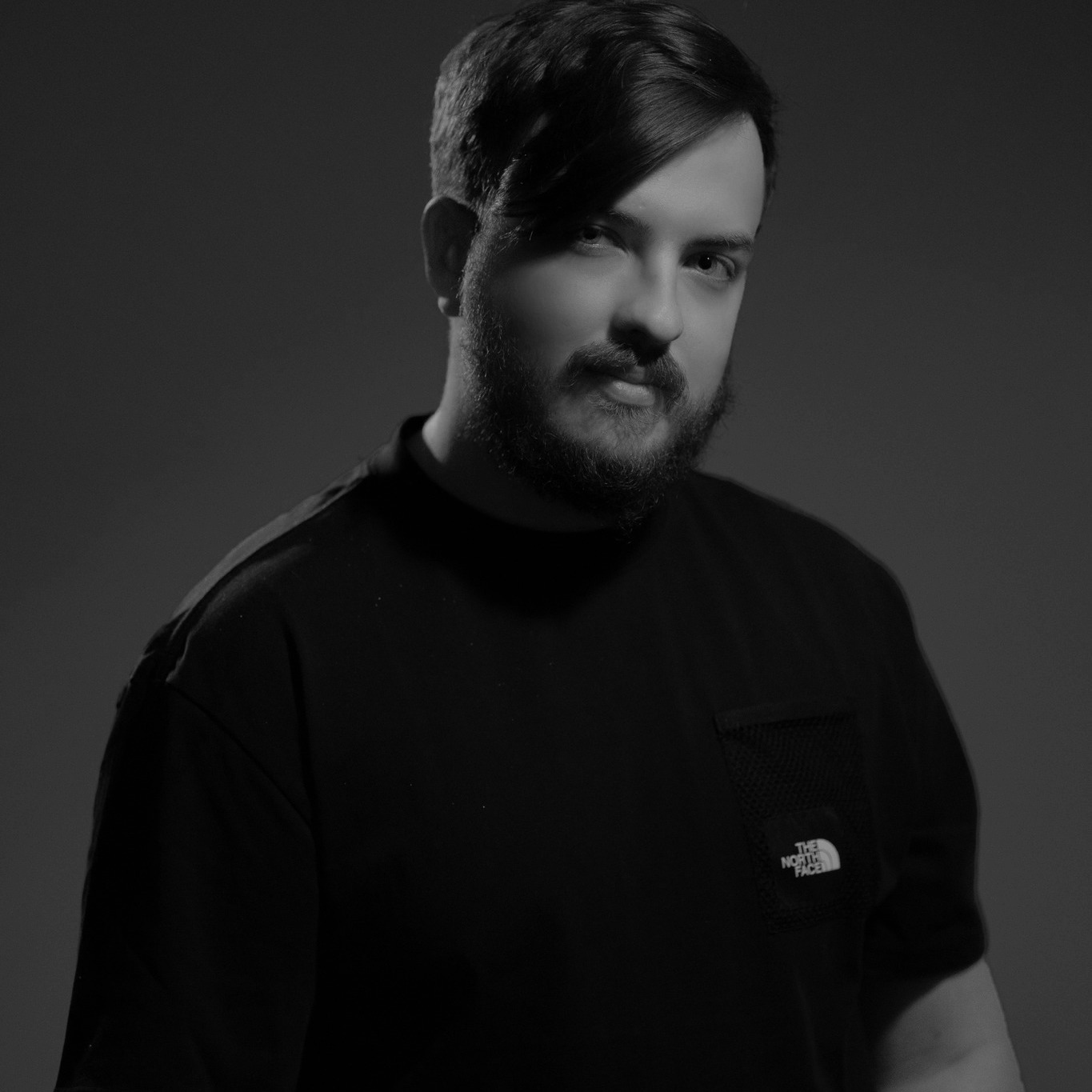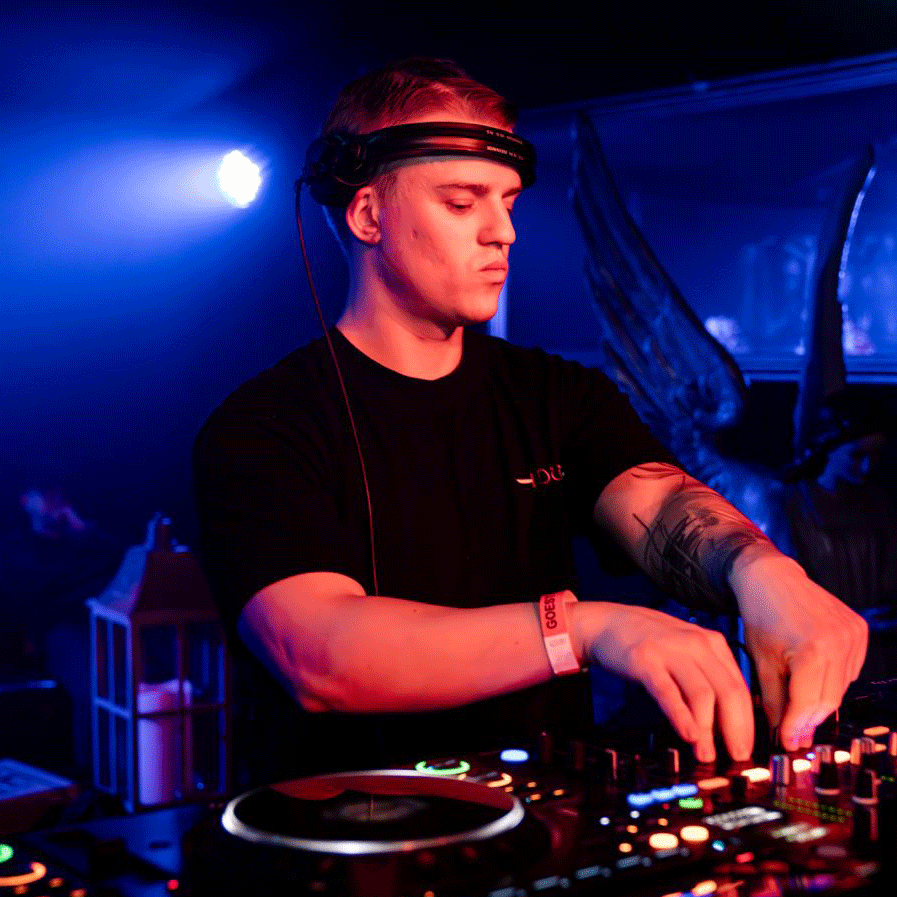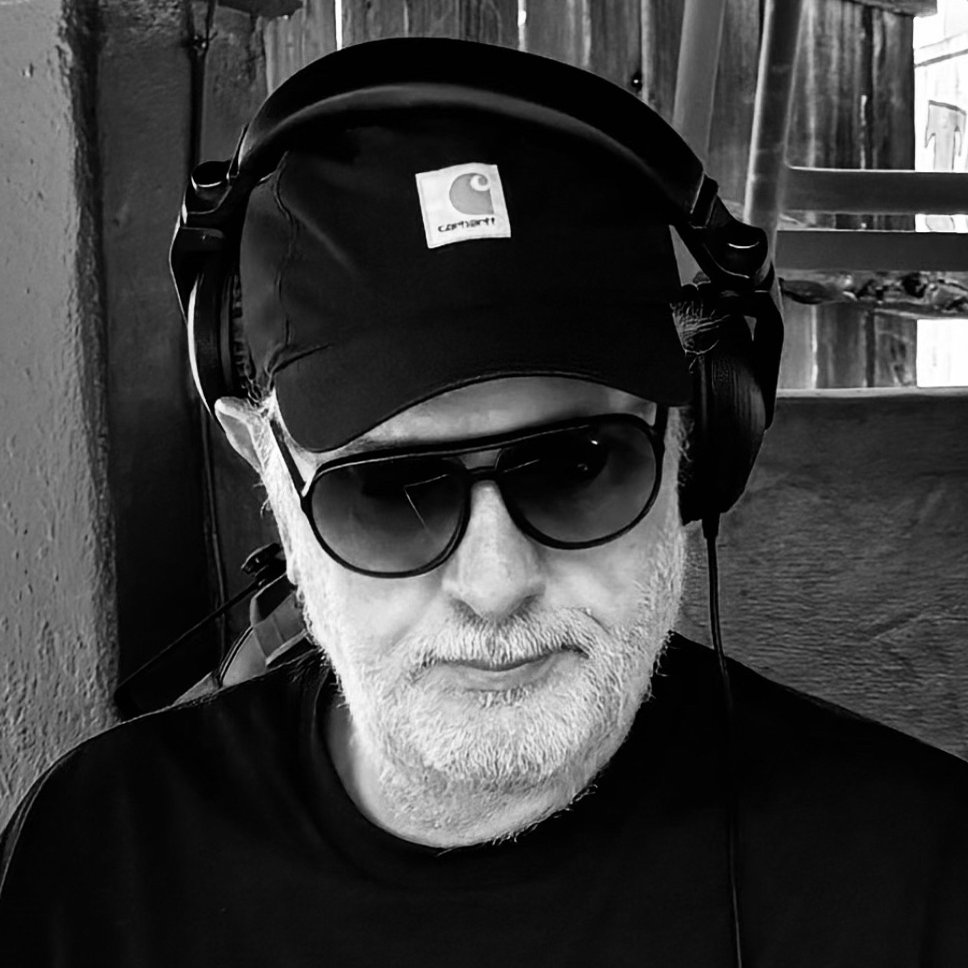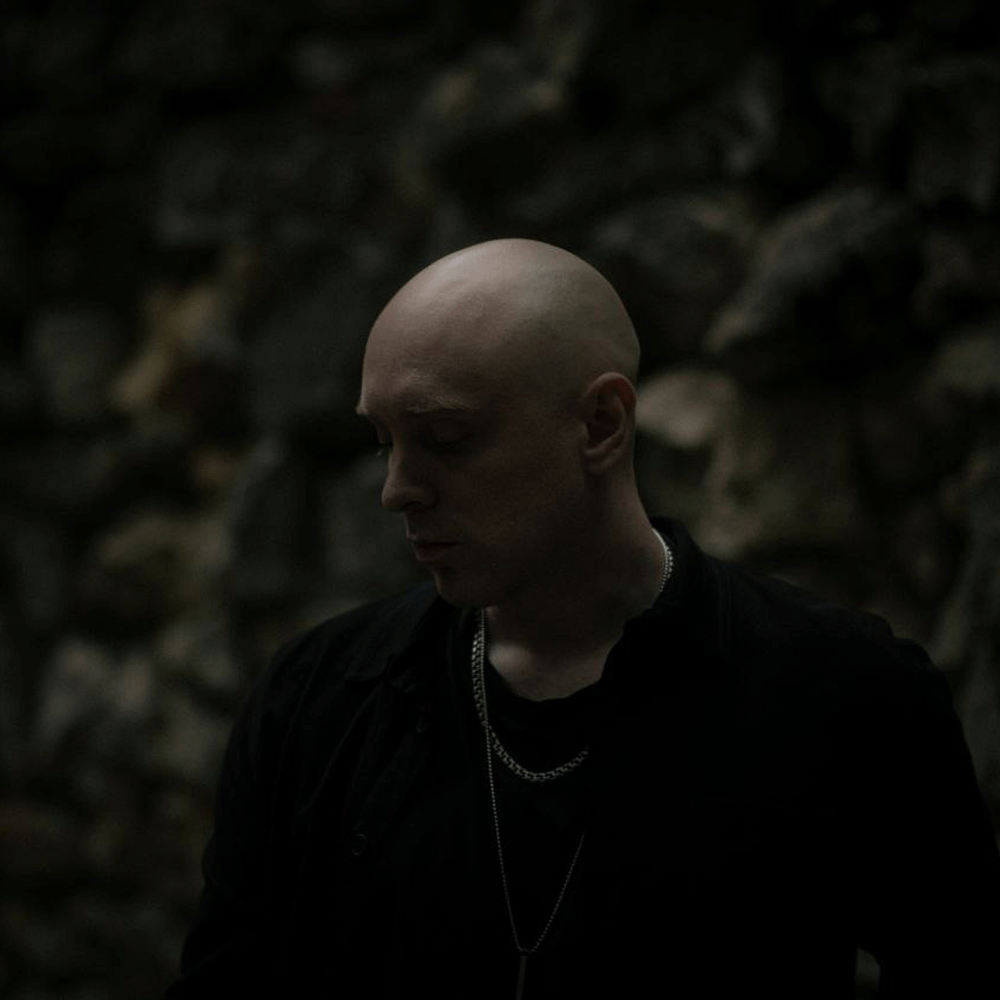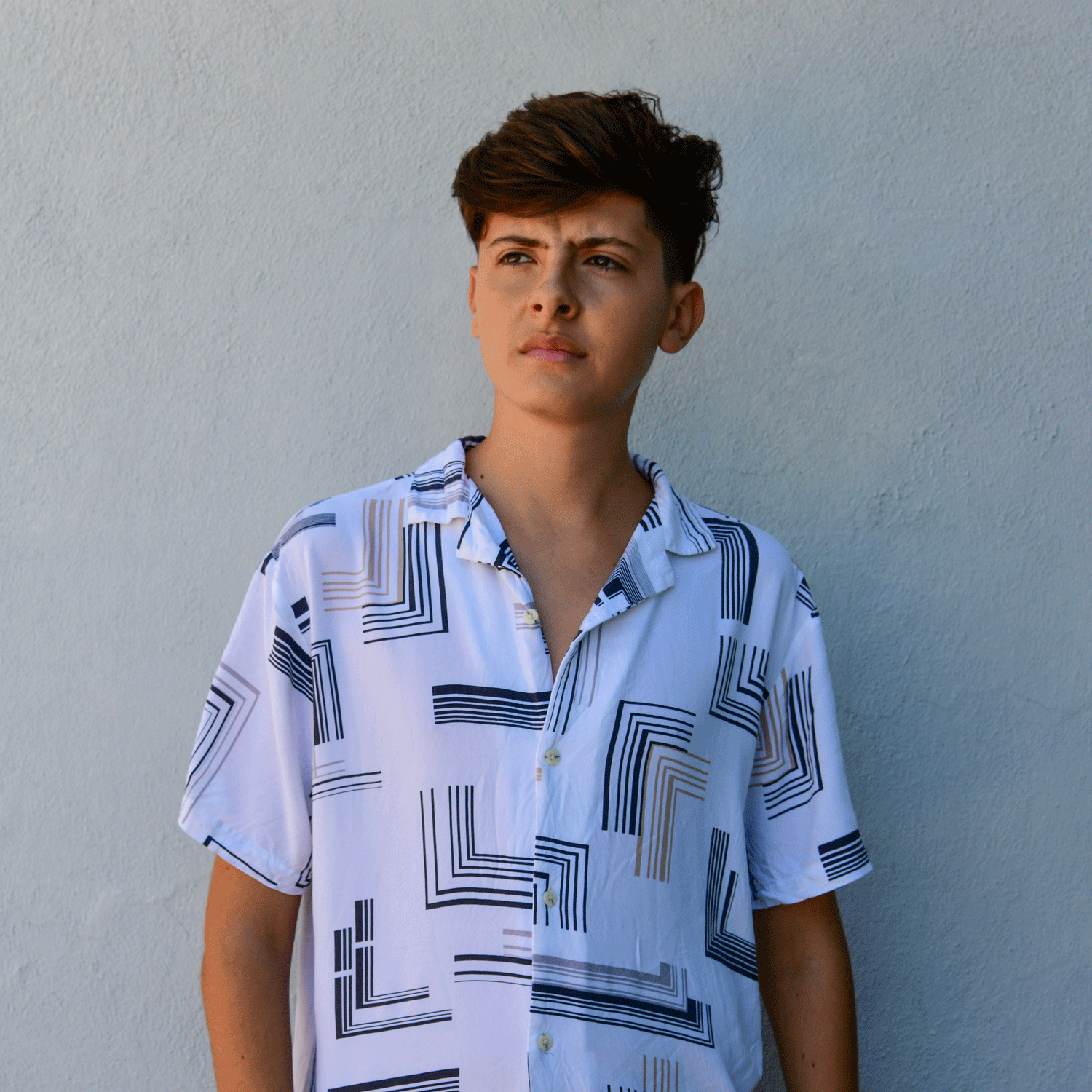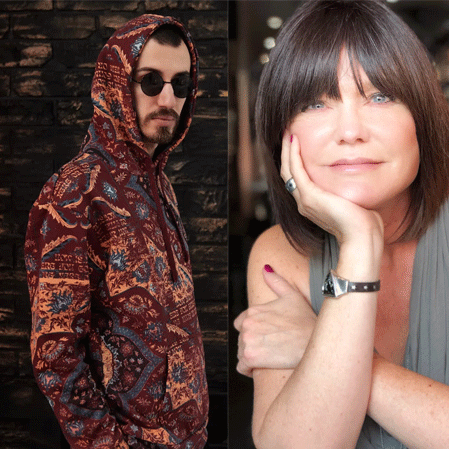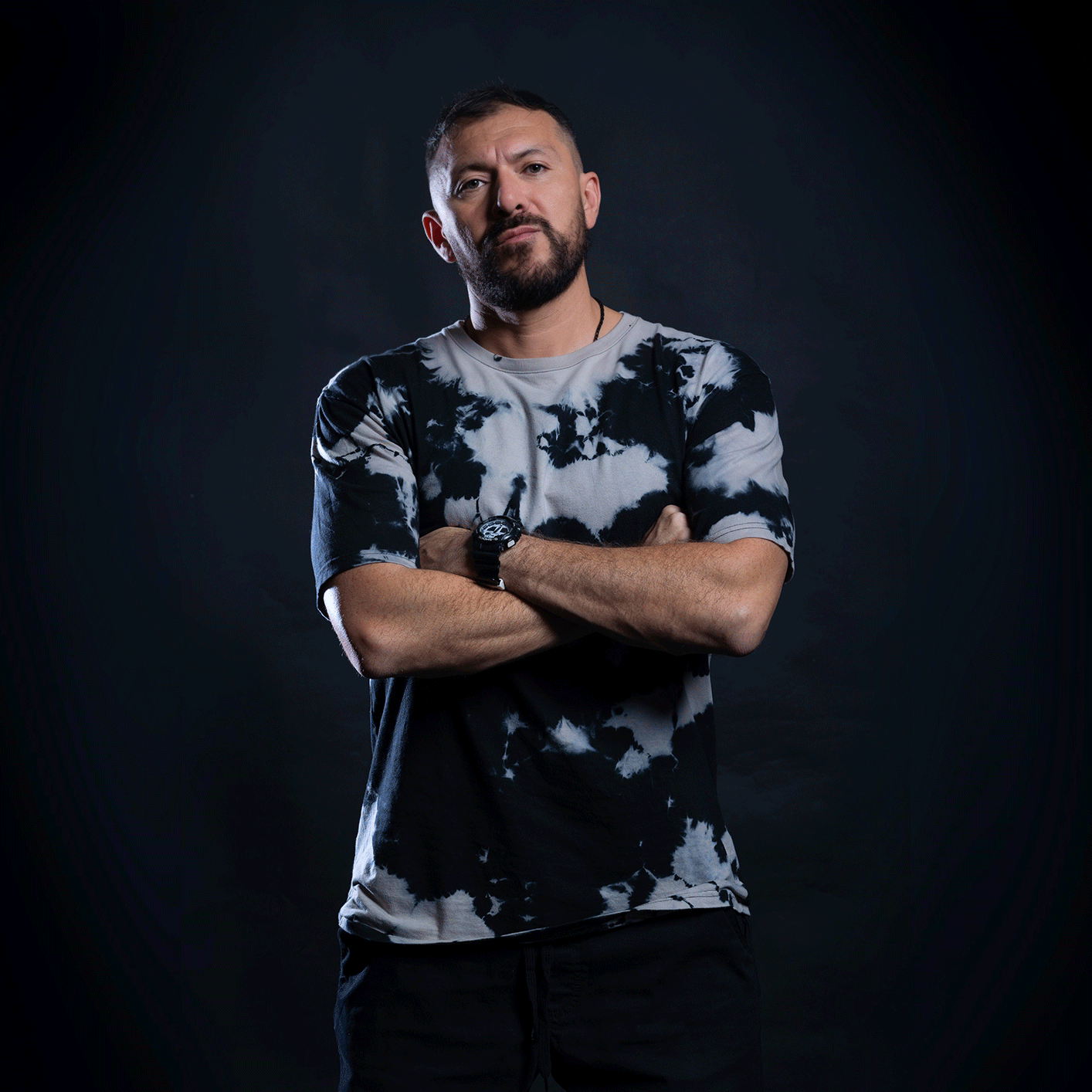
Cristian’s unwavering passion for producing, songwriting, and performing, plus a flair for creating deep emotive dance anthems, is what moves him. His sonic aesthetic marries an epic and enigmatic mood with evocative cascading synths and rolling basslines. It’s sincere, biographical, and inspired by everything around him. From his Piedrabuena Ghetto hometown to his globetrotting, whether it is his tales from the clubs, love, life, laughter, or rebellion, his productions capture the sensations of every moment. This week find Cristian beginning the year with the Hernan Cattaneo and Nick Warren supported 'The Beginning Of Everything' via his You Wouldn't Understand imprint, a release which makes him an artist to watch as 2024 takes shape.
Progressive Astronaut caught up with Cristian to learn more about the release of 'The Beginning Of Everything', his background, nightlife in Argentina, creative process, DJing, and more. Enjoy.
Hi Cristian, thanks for joining us. What is your current mood and what was the last piece of music you listened to?
First and foremost, I want to express my sincere gratitude to the entire Progressive Astronaut team for extending the invitation. It brings me immense joy to be here with all of you, and I am genuinely excited about everything that lies ahead in 2024.
Reflecting on 2023, it was a year marked by numerous changes, a period of self-reconstruction, and, throughout it all, music served as my sanctuary. They say that you are what you eat, and I firmly believe the same principle applies to the music we choose to embrace. In a way, we curate a soundtrack that accompanies the journey of our lives each day.
Recently, I've been kickstarting my days with the track "You r mine" by Wood. It's a single Wood released after a considerable hiatus on his new label, “Pneuma”. The song exudes a spring-like, almost summery vibe, and this track aligns perfectly with that sentiment. It carries a year-end mood that brings me a sense of peace, a touch of nostalgia, and a simultaneously epic feel. It truly energizes me to embrace the day ahead. I highly recommend giving it a listen.
How has your year been, how have you been enjoying the summer in Argentina and what are your plans for the coming week?
It has been a summer that kicked off on a positive note, marked by the establishment of my own label and extensive studio work. Amidst it all, personal circumstances forced me to temporarily pause everything. In such moments, summoning extra strength becomes crucial for realignment and reshuffling. The journey was challenging, but I emerged stronger, and now, I find myself content and relishing the summer unfolding in Buenos Aires. I'm diligently working to see the gradual fruition of all the projects I've been immersed in. The results are immensely satisfying, and I'm eagerly anticipating what lies ahead.
In the last week of December, we celebrated the release of the first Various Artists (VA) compilation from my label, You Wouldn't Understand, titled "Understand Volume 1." Collaborating with artists and friends from Argentina, Chile, and Colombia, including Ananta, Berdu, Oflex, Guille Campo, Paul Out, Fefo & Moli, this inaugural VA release from YWU has been nothing short of fantastic. It features an eclectic selection that we hope will set the tone for what YWU aims to be.
Looking forward to the first week of 2024, the release of my inaugural EP, "The Beginning of Everything," on my label is on the horizon. Consequently, my focus is entirely devoted to the releases and their promotion.
Take us through a typical day when you’re not travelling, what does a day in your life look like?
Well, I used to be a night owl, but over time, I've become more of a day person. I wake up very early in the morning with calm music, have a good breakfast, catch up on a bit of news, and then straight to the studio to produce. In the mornings, with fresh ears and senses and accompanied by a good cup of coffee, I feel most sharp when it comes to creating my productions.
I also take breaks to go exercise and walk by the riverbank. Many times, I force myself to be in silence, and other times, with headphones on. During these walks, I love discovering new artists or going back decades to set the musical tone for the day and get inspired.
While a significant part of my time is spent producing or undergoing some training to improve or learn, I also try to have moments of leisure or just doing nothing. It helps me reset and 'clear the cache.' That way, when I get back to music production or graphic design, I can be clearer and more focused.
In the afternoons, a bit of exercise, and then to Escuela Sonica, where I'm a tutor. It's something like a mentoring teacher, where I provide support to students studying electronic music production. I love being able to pass on what I've learned and be on the same level as the students. It's an incredible feedback loop; the reality is that I learn much more from what I can transmit. The students consistently introduce innovative perspectives, keeping me energized and curious in this ever-evolving journey.
By night, it's time to rest, also to review what I've done during the day. I can't lie; maybe I'll return to the studio to tweak or refine an idea that emerged during the day.
How did growing up in Argentina influence your music taste and direction? Or did it all?
Oh, that's a good question. In Argentina, music is everywhere. I grew up in Barrio Piedrabuena, this kind of ghetto in the southern suburbs of Buenos Aires. As a kid, my family had a stash of vinyl records, and we had this ancient record player that I absolutely loved. I'd jam out to everything, from folklore to tango, and loads of orchestral stuff.
Then, in my teenage years, my buddies and I were on a mission exploring grunge, hip-hop, and the house scene of those days. Cypress Hill, Beastie Boys, Pearl Jam, Nirvana, Soundgarden, KLF, Quadrophonia, Prodigy, Depeche Mode. I was hooked on the radio and spent hours flipping through record store bins, hunting for new sounds.
Argentina's got this crazy variety of music and killer artists in every genre. My musical taste has always been all over the map, from “Soda Stereo” to “Masacre Palestina”, “Sumo” to “Fun People”. I was a radio addict, soaking up different styles, and hit up countless gigs. When it comes to electronic or dance music back in the day, Hernán Cattaneo was the man. He took that big leap, opening the door for major festivals and heavyweights like “Paul Oakenfold” and “The Chemical Brothers” to hit up Argentina later on.
I reckon variety shapes us and teaches us, even if we don't realize it. It leaves a mark on all of us, especially those lucky enough to be in the music biz. Loads of bands, solo acts, and artists from Argentina and around the world have shaped me – and they still do. Just to throw some names out there: Gustavo Cerati, Björk, Sigur Ros, Spinetta, Ben Böhmer, Hans Zimmer, Underworld – the list goes on and on.
What are some of your best memories from first going to clubs? Were there specific nights or sets that really made you feel you wanted to pursue electronic music?
One night that's etched in my memory forever happened back in '98. I was with my two lifelong buds, Lautaro and Juan Pablo. We hit up Clubland, where Hernán Cattaneo spun every Saturday as the resident DJ. We got there way too early, I remember – it was dead empty, and it was winter, freezing cold. Carlos Alfonsin was on the warm-up, playing this exquisite music. After a while, the crowd started rolling in – a diverse bunch, some in costumes, others dressed to the nines, and some like it was just another day. Every type you could imagine in society was there, all heading into this party to celebrate who knows what. It was like this attitude each person carried, and at the same time, it felt like a club of friends who had known each other forever – something I'd never experienced.
Everything about that night was surreal, and the music was mind-blowing. Then, the magic happened – Hernán Cattaneo took the stage, and at one point, he dropped "Origin" - Wide-Eyed Angel (Inversion Mix), a banger from those years. The roof literally exploded; sparks and confetti rained down on the dance floor, and people were dancing like we'd just won the World Cup.
To this day, that was the best night in a club for me and, in a way, a chapter of history. Every Saturday became a pilgrimage to "the mass" at Clubland, our renamed "The Temple." It was the early days of the movement, and at that time, it felt almost like a cult. It left a mark on me, not just for the party itself, but for the music. Each Saturday felt like a celebration, and during those years, I got to groove on the dance floor to artists like Deep Dish, Danny Tenaglia, Dave Seaman – all the big names wanted to play at Clubland. Those were incredible years, and it definitively set me on the path to dive into music production.
If you were a tour-guide for nightlife in Argentina, what would be the clubs you’d take the people to see and what local DJs do they need to hear?
Over the years, the Argentine electronic music scene has truly flourished, offering a multitude of options. Buenos Aires boasts a diverse range of clubs and fantastic parties. Personally, I have a broad taste in electronic music.
When it comes to the mainstream Progressive or Techno scene, places like “Crobar”, “The Bow”, and “Mandarine” are unquestionably excellent venues to catch local and international scene leaders. However, alternatives have also emerged, such as La Biblioteca, where you can discover new and emerging artists. Post-pandemic, there has been a rise in more outsider Techno parties, with a darker mood reminiscent of Berlin. Events like “Fa Got”, “Durex”, and those organized by E110101 and Danza Nativa have a unique vibe that stands out. Additionally, in recent years, cultural spaces blending electronic music and digital arts, such as “Dunepark” and “ArtLab”, have surfaced, showcasing incredible new talents.
Among our local artists, there are several who have truly reached a standout level. If you find yourself in Buenos Aires, you can't miss performances by talents like Juan Hansen, Ezequiel Arias, Mariano Mellino, and Paula Os.
Being a Buenos Aires resident, how would you say the nightlife differs from Buenos Aires to the other major cities in Argentina? Or is there a difference at all?
Buenos Aires is a city that literally never sleeps; there's always somewhere to go, whether it's a club, concert, event, or theater performance. In the past few weeks, within a span of 10 days, we had Roger Waters, Red Hot Chili Peppers, The Cure, Blur, Monolink, and many other events and club parties. The variety is vast and impressive. Buenos Aires, in terms of music and culture, is incredibly diverse and stays active consistently.
In other cities across Argentina, the electronic music scene is booming. Cities like Rosario, Cordoba, and Mendoza are hosting significant events. Some are innovating with unique venues, while others are incorporating beautiful natural settings, earning a spot on both national and international calendars. The productions and stage setups in these cities boast quality and sophistication, with nothing to envy compared to what happens in the capital.
When we ask most artists what is responsible for the popularity of progressive music in Argentina the overwhelming answer is Hernan Cattaneo, would that be your feeling also? And if so please speak on that, also to add to that, who else from Argentina inspired you when you first discovered the music.
Well, as I was saying, Hernan without a doubt is the one who took the leap and opened the doors for the electronic music scene to grow not only in Argentina but also in Latin America. And it wasn't just with progressive house; the overflow happened across various genres. In a way, his passion for music reflected a lot in what he did and how he did it. For those of us who had been following him from the beginning, he left a significant mark. In the late '90s, Hernan could be found every Saturday playing his classic 5-hour set at Clubland. Additionally, his radio show from those years, "The Beat," where he discussed a lot about music and brought in unreleased tracks from abroad, was another highlight. I remember when he used to play acetate records with incredible premieres and previews on the radio, and I would spend my time recording them on cassettes. There were many others who, alongside Hernan, paved the way during those years and contributed to the growth of the movement, such as Carlos Alfonsin. With different styles, there were also Zucker, Diego Ro-K, Carla Tintore, and I can't forget Altocamet and Urban Groove.
Being a progressive house artist would you say the genre goes through certain trends the way melodic house and techno does? And if so how important is it to stay relevant with these trends?
Certainly, there's a shift happening in Progressive House, reminiscent of what occurred in the mid-2000s. Soon, platforms like Beatport might need to broaden their classifications, perhaps not so much based on genre names but on the emotions they evoke. I believe Progressive House, as we knew it, has been evolving for quite some time. While I'm not a big fan of genre labels, it's noticeable that within Progressive, we're encountering more sub-genre variety. On one hand, tracks are becoming darker and groovier, while others are brighter and more focused on melody.
Additionally, I think Trance is experiencing a resurgence, and it's fascinating to see how it's reclaiming a space with a renewed sound. Much from the '90s is making a comeback, reimagined. It's true that mainstream sounds are now dominated by what we know as Melodic Techno. I believe social media and current consumerism are also influencing the final creations. Nowadays, we see many tracks and producers sounding alike, and tracks are often released with both shorter "radio" versions and extended versions – the former for social media and streaming services, and the latter for DJs. All these factors are considered when artists sit down to produce.
Personally, I don't entirely agree with the rules of ephemerality imposed by the market. I think they strip creations of their soul. However, as an artist or producer, adaptation is necessary. The most important thing, I believe, is for an artist not to betray themselves and to find the sound and mood that feels comfortable and authentic. Creating the work as it was genuinely envisioned, and if the market demands a shorter version, taking on the challenge of crafting an adapted second version.
You have a new EP ‘The Beginning of Everything’ out now via your You Wouldn't Understand imprint. Tell us a bit about the release and how it showcases your current sound.
Oh, I'm super pumped about it! The EP includes three tracks and is named after one of them, "The Beginning of Everything." The title really captures what I'm feeling about how my music is evolving and finding a distinct identity. Given my eclectic taste in music overall, I think you can spot that diversity in my productions; it's a big part of who I am.
For this release, my aim was to blend my melodies into a groovier atmosphere while keeping those epic and emotional drops. The three tracks on the EP were crafted almost back-to-back and somehow mirror that reconstruction process I was telling you about, something I went through this year. It's been quite a journey!
Let our readers inside your studio for a moment, what is your current setup and what studio tools are featured heavily in your recent productions and more specifically your ‘The Beginning of Everything’ EP.
My studio is set up in my new apartment, in the Núñez neighborhood of Buenos Aires. I have a massive window overlooking the street, where I can see a giant tree filling the view with greenery, putting me in a mood that's just right for creating my music. I work on all my projects with Ableton Live, using many VSTs for melodies. The main ones, without a doubt, are Serum and Diva; they allow me to create a very distinctive sound that identifies me. I also use Ableton's native tools, which are always very effective.
I love using samples and working with them, playing with filters, cuts; beautiful sounds are achieved. All my creations start in a good atmosphere, allowing me to naturally add elements. Additionally, I use external analog hardware that I record at Escuela Sónica and bring home, such as the Roland Juno-6V, which always adds a distinctive touch.
For setup and creation, I rely on MIDI controllers, a Push 2, and an APC 40 MKII. My audio interface is an Audient iD14 Mk2. I use DT 990 PRO headphones with 250 ohms that I adore, and the monitors are Adam Audio T7V. I test all productions on different devices: in the car, on the phone. However, the best monitor and the one that influences many of my final decisions are my wired AirPods. Yes, they give good results, and if it sounds good there, it sounds good everywhere.
Talk to us about where your inspiration comes from, and was there anything in particular which inspired the tracks on this EP?
Well, undoubtedly, this year marked me with what was happening to me personally—a quite painful and abrupt separation, not so much for the lack of love but for the disillusionment. So, I had to rebuild myself, heal, and start anew. In those autumn and winter months, the cold of Buenos Aires and the yellow leaves flooding the streets create a very special atmosphere, and for me, the best way to navigate it is through music.
On one hand, there was always the sound of Pearl Jam, Björk, Sigur Rós, artists who have deeply influenced me, and every time I listen to them, I feel like I'm reconnecting with my essence. On the other hand, everything released by the Ben Böhmer's label Ton Töpferei, where you can find the beginnings of artists like Bongbeck and Wood, Koelle, resonates with an atmosphere I strongly identify with. This helped me a lot in expressing the process I was going through—a process of reconstruction and reflection, evident in each of the three tracks of this EP.
The first track, I feel, expresses the beginning of everything, as its name suggests. The second, "Dharma," is about the teaching and the lessons learned. Finally, "Deep Shanti," I sense, conveys the achieved peace, the reconciliation with oneself.
Hernan Cattaneo has been one of the first DJs to support this release, tell us about that and what it means to have the approval of such a world class DJ.
Having the support of someone like Hernan is like telling oneself, "I'm on the right path," and the fact that he chose one of my tracks is incredibly exciting. He consistently supports new artists and stays closely tuned to what's happening—an exemplary individual and professional. It's truly a before and after moment. Of course, the tracks on this EP carry that distinctive touch and mood that Hernan often uses in those epic drops he's known for. It's truly an honor that he has taken notice of me.
Being a label owner, how do you decide which of your tracks you want to release there as opposed to shopping them to other labels?
This time, with Hernan's support, I knew that releasing it on an already established label would be more agile and dynamic, providing me with greater reach. However, the delays in releases are quite noticeable, and I really didn't want to miss the opportunity to launch them and create the artwork in my own way and the way I envision it. So, I realized it was a great opportunity to grow my own space and respect my sound. Of course, the workload is tremendously greater, as are the costs, but the reward is immensely greater.
Let’s talk about production a bit more for a moment, where does the impulse to create something come from for you? What role do often-quoted sources of inspiration like dreams, other forms of art, personal relationships, politics etc play in writing music for you?
Certainly, everything influences us and replicates in what we do, as I was saying, personal life, dreams, and politics, the economic and social situation too. In Argentina, we are experiencing a very particular situation, and it directly affects us. Personally, it's sad to see how extremist and antagonistic ideas are proliferating worldwide. Electronic music, as an art form, I feel, needs to reflect on this point. One of my new projects includes samples that attempt to express a bit of this, addressing issues like homophobia, discrimination, and the lack of empathy that we live with.
What is the task you enjoy the most when producing and what would you prefer someone else to do?
I love producing and creating melodies; I could be doing it infinitely, no doubt. Also, I'm fascinated by groove and arrangements, enjoying the entire creative process, and ensuring the mix is clean and robust until completion. However, when it comes to mastering, I definitely rely on an external professional. I prefer to lean on someone dedicated 100% to mastering for that final touch.
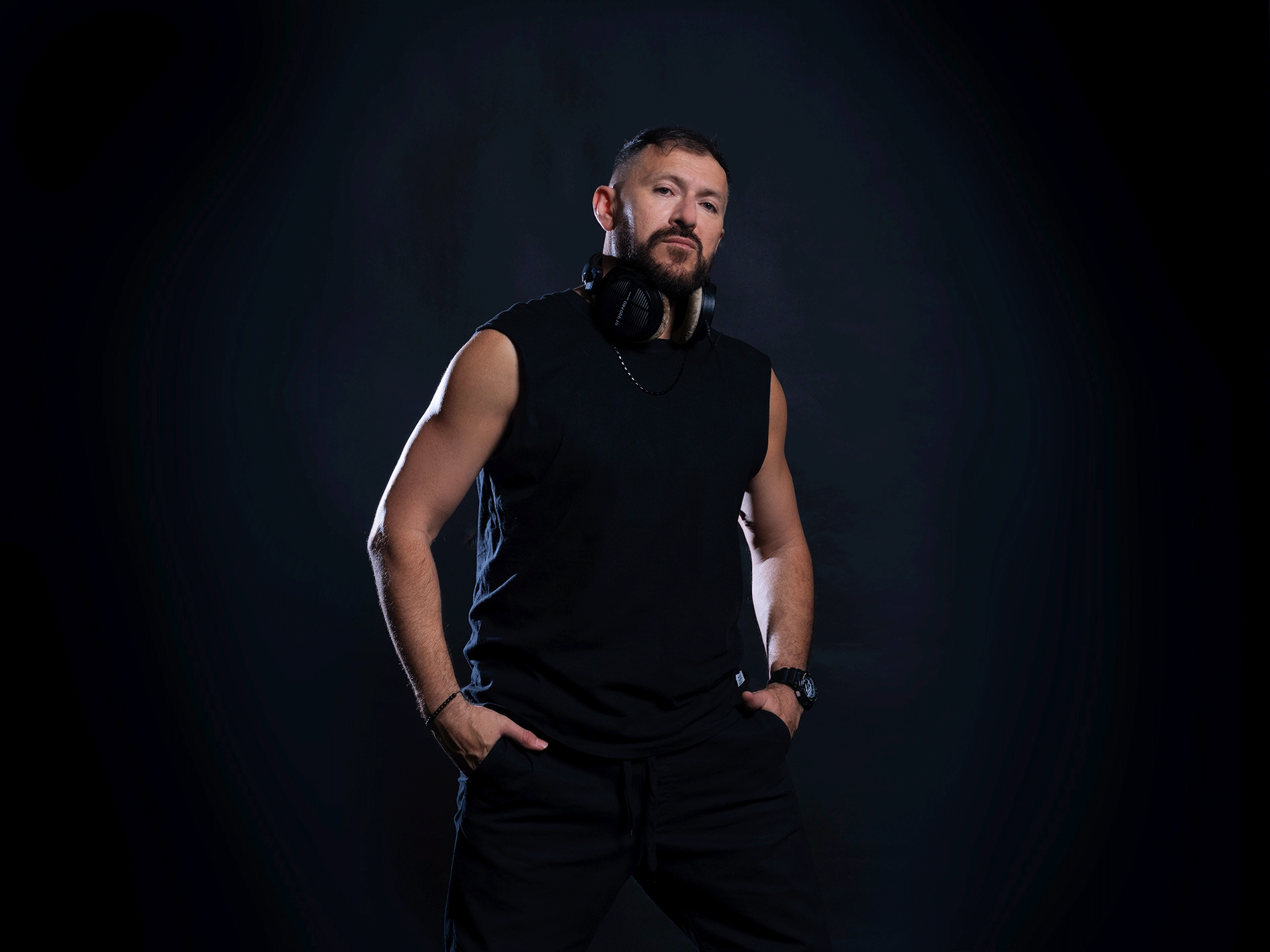
Let’s talk a bit more about your label ‘You Wouldn't Understand’ which has been running since the beginning of this year. What led you to start the label initially? Was this your first foray into running a record label?
Well, the idea had been on my mind for a while, and it was about creating my own environment to release my music. I wanted the chance to craft the visuals and integrate everything I love and have always been dedicated to.
On the other hand, I've noticed that many labels today have long timelines from when an artist signs a contract to when the music is finally released. Six months, a year, or even more, and it seems like too much time to me. While I understand the schedules big labels must handle, for the artist, it means being out of sync and outdated.
Music is art, and it encompasses not only the music itself but also the design of an EP or a single cover, which is part of the artistic process. It makes sense for the artist to have a say in that process. At YWU, we want to give artists the chance to participate in that process.
Currently, labels tend to establish a uniform aesthetic both in sound and cover art, as well as their communication. If I want to release my music on a certain label, I know there are aesthetic and musical rules I must follow during the creation process. While it's interesting, and of course, I'd love to release on certain labels that I'm a devoted fan of, I also like having the possibility of having my own space where I decide the aesthetic and sound without any limitations.
The concept of YWU is about eclecticism, both in sound and aesthetics. It's about transforming that into a new concept, providing the artist with the opportunity to sound authentic. Each label release should be interpreted as a step, an eclectic curation that doesn't pigeonhole. I find it very interesting and a great opportunity. I believe that in variety and in a good selection, there is a difference. We aim at an audience with an eclectic ear.
Let’s discuss artwork for a moment; is the importance of artwork something that has maybe gotten lost a bit as music gets more rapidly consumed? Should labels be putting more time and thought in their artwork?
I think it's a differential that needs to start happening—the album art, graphics, and visuals of artists in music or their performances. I believe it has been lost over the years and overshadowed by what the labels dictate. It's also related to the speed and immediacy of today's consumerism.
Now, slowly, visuals are making a comeback, as seen with features like canvases on Spotify. It's a great opportunity for those of us who also love to identify ourselves collectively through visual art.
There are also new artificial intelligence tools that can be helpful for producers without prior knowledge, providing them with an avenue for exploration.
Many new things are happening, and as an artist, one has the challenge of making the most of them.
What advice do you have for artists hoping to get signed to ‘You Wouldn't Understand’?
YWU is the home for the misunderstood, for those who perceive music as art where genres are left behind, and where anything can happen. We have no limits, and we aim for good taste under thoughtful curation.
We envision YWU as a concept akin to an art gallery, where you can encounter pieces ranging from progressive house to raw techno or from BreakBeat to Trance. There are no genres, only beautiful works that need a space to be showcased. We hope to be the sanctuary for that, and, of course, anything melodic will have a special place.
You haven’t DJed much recently but will be returning in 2024, not only to DJing but with a new live show as well, tell us about that and what your plans are.
These past few years, I immersed myself completely in production, took courses, and sought mentorship to keep advancing, also providing mentorship classes myself, somewhat putting DJing on the back burner. Now, with ample original material, my plan is to return to performing in a DJ format and also alternate with a DJ + Live format, where I feel very comfortable and can improvise, creating those beautiful mashups.
This 2024 is shaping up to be a challenge, and it's time to step out of the comfort zone and evolve. We are planning a YWU event where we want the LIVE format to prevail—stay tuned for updates soon.
If you could set up an event with a line-up of five artists of your choice, who would you book and what set times would you ascribe to the artists?
Absolutely, it would be a beach event starting at sunset and ending at dawn, divided into two scenes. The first part would be a tranquil sunset with artists like Wood, Bongbeck, Koelle, building up to a significant performance by Underworld around midnight. Following that, from late night until sunrise, a full set by the maestro himself, Hernan Cattaneo.
If you are not DJing, producing or socializing at clubs, where do we find you? And doing what?
Exercising or strolling along the riverbank in Buenos Aires, I really enjoy exploring the city. I also love being with my friends, gathering to share mate or have a barbecue. My friends and family are very important to me, and I cherish spending time with them.
If you were not a DJ/Producer what do you think you’d be doing with your life?
Well, actually, I have other activities that I simultaneously pursue, and I really enjoy them. I'm a marine cargo surveyor specialized in insurance, which is a little-known field that I love. It also allows me to engage in the more logical or structured side that I possess. I'm also a multimedia designer, and I love creating graphics and visuals. Today, I can't imagine a life without both activities, although the one that brings me the most comfort and makes a difference above the others is undoubtedly music production.
Current top five tracks?
Goodbye - Erol Alkan Rework (The Chemical Brothers - Erol Alkan)
Meloram - Ezequiel Arias
You r mine - Wood
One Last Call - Ben Bohmer & Felix Raphael
Thunder & Sunshine - P.O.S
What are some of your favourite TV series? Both recently and all time?
"Nada" is an Argentine miniseries that recently premiered. It revolves around an Argentine food critic, and it's very amusing and interesting. The show showcases a lot of Buenos Aires and its cuisine. Highly recommended!
Apart from music, what makes you happiest?
Traveling is something I love, and I'll never be able to stop doing it.
What does 2024 hold for you in terms of releases and gigs? Anything you can share with us?
I'm working on several projects, and the most artistically significant one for me is being done for a label owned by a prominent artist from Hamburg, whom I admire. It feels like fulfilling a dream. I can't reveal much more at the moment as we are actively working on the arrangements, but I assure you it will be something beautiful. We're also in the early stages of setting up a streaming channel for YWU with live sessions and interviews with artists from the label. We hope to launch it in the first few months of 2024. This year is a pivotal one for me as an artist and also for YWU; it's going to be a beautiful challenge.
'The Beginning of Everything' is available now via You Wouldn't Understand: http://tinyurl.com/2zetvsww








